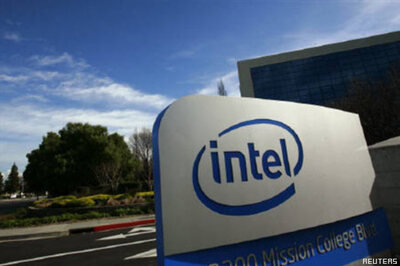
views
Beirut: Syrian tanks stormed Hama under heavy shelling Wednesday, taking over a main square at the heart of the restive city and cutting off electricity, water and phone lines on the fourth day of an offensive. The UN Security Council added its weight to the growing international outcry, condemning the attacks on civilians.
Opposition figures and activists accused the regime of striking hard at a moment when world and media attention were distracted by the trial in Egypt of former President Hosni Mubarak.
"Hama is being collectively punished for its peaceful protests calling for the downfall of Bashar Assad," said Suheir Atassi, a prominent pro-democracy activist. Like many others Syria-based activists, Atassi has gone largely into hiding and spoke to The Associated Press via email. "The Syrian regime is committing crimes against humanity. Where are the free people of the world?" she said.
At least three tanks took up positions in Hama's central Assi square, which in recent weeks had been the site of carnival-like demonstrations by hundreds of thousands of protesters calling for the downfall of President Assad's regime.
A religiously conservative city about 130 miles (210 kilometers) north of the capital with a history of dissent, Hama had largely fallen out of government control since June as residents turned on the regime and blockaded the streets against encroaching tanks.
But Syrian security forces backed by tanks and snipers launched a ferocious military offensive that left corpses in streets Sunday, tightening their siege on Hama and sending residents fleeing for their lives. The death toll since Sunday has reached around 100, but the exact figure is difficult to verify.
The assault on Hama has drawn a fresh wave of international condemnation, including at the Security Council. After more than three months of deadlock, the council adopted a presidential statement Wednesday condemning Assad's crackdown on anti-government protesters and widespread human rights violations.
The Syrian regime may be thinking that regaining control of Hama will blunt the uprising, which is in its fifth month and has so far proved remarkably resilient.
Hama has a history of dissent.
In 1982, Assad's father, Hafez Assad, ordered the military to quell a rebellion by Syrian members of the conservative Muslim Brotherhood movement there. Hama was sealed off and bombs dropped from above smashed swaths of the city and killed between 10,000 and 25,000 people, rights groups say.
Activists are now accusing the regime of repeating history, and many Syrian protesters said they expect Assad to face the same fate as Mubarak, ousted in a popular uprising and put on trial in the Egyptian capital Wednesday.
"Assad's forces and death squads took advantage of the world and media's preoccupation with Mubarak's trial to storm and massacre Hama once again," said Atassi. "But soon we will see him (Assad) behind bars in a Syrian trial and he will be tried by the free people of Syria."
Activists reported a new military push into the city early in the day, with fresh explosions, fierce shelling by tanks and machine gun fire heard in many parts of the city. Clouds of smoke hung over many of its rickety apartment buildings.
"We are being subjected to shelling, machine gun fire, snipers fire, everything you can think of," said activist Omar Hamawi.
Electricity and telephone lines were cut Wednesday morning but mobile phone lines appeared to have been partially restored by early afternoon.
Hamawi, reached by phone, said the shelling was mostly targeting al-Hader neighborhood. He said sporadic tank and gunfire was also heard in various other parts of the city. He spoke briefly saying he had to save his phone battery to call and check on relatives.
Telephone calls to other activists and Hama residents were not going through.
Activists said residents continued to leave the city but were being hampered by gunfire and random shelling from security forces and soldiers.
"A building and many houses have collapsed due to the shelling," reported the Local Coordination Committees, an activist group that helps organize and tracks protests in Syria.
Rights groups and activists said a nine-year-old girl died Wednesday after she was struck by a sniper's bullet in the coastal town of Latakia Tuesday night. The London-based Syrian Observatory for Human Rights said she was wounded after she stepped off a bus with her mother as security forces were firing to put down a protest.
About 1,700 civilians have been killed since the largely peaceful protests against Assad's regime began in mid- March, according to tallies by activists.
The UN Security Council's presidential statement on Syria carried less weight than a resolution, but it still becomes part of the council's record.
The vote, which required approval by all 15 council members, put Lebanon in a difficult position. Syria long dominated its neighbor to the west and remains influential with some Lebanese politicians - including the current government - and with the powerful Hezbollah militant group that it supports.
Instead of blocking adoption of the UN statement, Lebanon invoked a procedure last used 35 years ago and dissociated itself from the text.
In other steps against Syria, USSecretary of State Hillary Rodham Clinton met Tuesday with US-based Syrian democracy activists as the Obama administration weighed new sanctions on Syria. Congressional calls also mounted for action against Assad's regime.
Italy recalled its ambassador to Syria on Tuesday "in the face of the horrible repression against the civil population" by the government. It was the first European Union country to pull its ambassador, and the measure came a day after the EU tightened sanctions on Syria.
The mounting international outcry has had no discernible effect so far in Syria.
Activists and residents also said military sweeps, raids and door-to-door arrests continued in many parts of the country.
Some 200 tanks were surrounding the eastern oil-rich city of Deir el-Zour, apparently awaiting orders to go in, according to Rami Abdul-Rahman, head of the Syrian Observatory.
The observatory, which relies on a network of sources on the ground throughout Syria, also reported the arrest of tens of people in the district of Khaldiyeh in central Syria's city of Homs. The area witnessed large demonstrations of more than 25,000 people calling for toppling the regime.
Also Wednesday, some 50,000 people marched in the funeral of a man who was allegedly killed under torture by security forces after detaining him last week.
Syria has banned independent media coverage and has prevented most foreign journalists from entering the country, making independent assessments of the events nearly impossible.



















Comments
0 comment